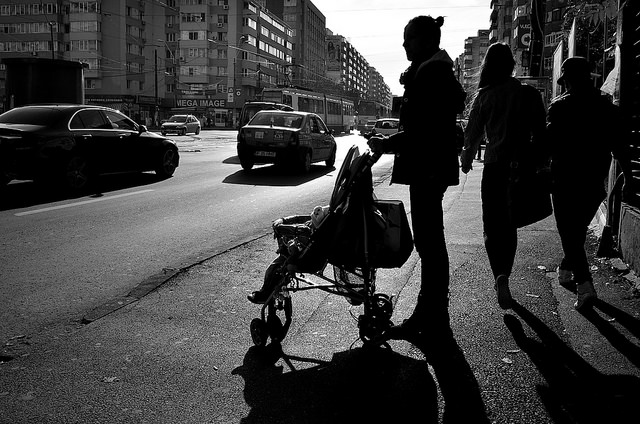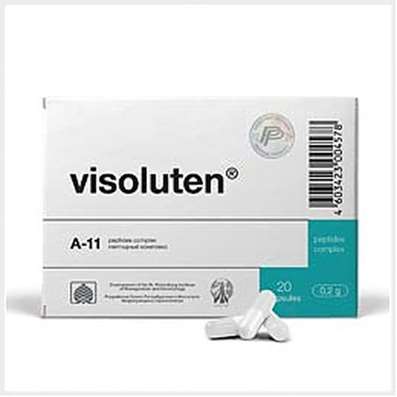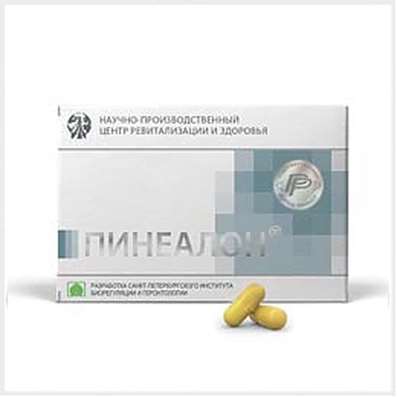Postpartum depression
04 Nov 2016
Psycho-therapist Dr. Doping tells about the factors affecting the condition of women after childbirth, study the history of the problem and with respect to patients with postpartum depression.
Depression is called a mental disorder, the main manifestation of which is the low mood. Contrary to popular belief, for the development of depression is not necessarily the effect of some external factors - stress, depression often develops for no apparent reason. There is no doubt that any healthy person periodically feels depressed mood. About Pathology say that if the depressed mood persists for at least two weeks, regardless of the external circumstances (time criterion). Two weeks - the minimum duration, and depression can last much longer: and months, and even, in rare cases, for years if not treated. The second criterion - the severity of the condition: it is that the person violated the daily operation - reduced his ability to work, he can not communicate normally with friends and family. All the usual human activity disrupted due to depressed mood.

If, however, go to the issue of postpartum depression, these states differ from other types of depressive disorders that develop in the postpartum period. Postpartum depression is called depression, occurring in the first six months after birth. I would say that this term is more correct to call for the first time emerged depression. That is, if a woman has previously been depressive episodes, the persistent depressed mood after birth - a worsening of existing depression in the postpartum period. In this case, it is advisable to use the term "recurrent depression" - is an independent disease in which a person has episodes of depression are recurrent.
- When postpartum depression began to be studied as a separate disease?
- Postpartum depression has attracted the attention of doctors relatively recently - in the twentieth century. But it is worth mention that there are a variety of mental disorders in the postpartum period, they have been described at various times. There are three main types of psychiatric disorder in the postpartum period. The first - the so-called baby blues ( «postpartum blues"), instability of mood, lasting several days (up to weeks) after childbirth. Postpartum blues evident in mood swings from mild depression to euphoric in tearfulness, sleep disorders, and is regarded as a normal reaction to the birth of the psyche. Apparently depressed mood during the postpartum blues not functioning in this state is not broken, it does not prevent a woman to lead a normal life. The second type of violation - postpartum depression, which dwell below. And finally, the third option - postpartum psychosis: severe mental disorders in which there are hallucinations, morbid ideas (for example, delusions of persecution), violation of orientation (a woman can not understand where she was, in her perception of time is broken).
Postpartum psychosis has been described for a long time, back in 460 BC, Hippocrates described the "puerperal fever", linking this condition with the loss of blood during childbirth. It's so vivid mental disorders that they can not fail to notice: the person starts to behave inadequately, hears voices, feels that he is being persecuted, and so on. This pattern, of course, immediately drew the attention of others.
In modern times, one of the first descriptions of postpartum mental disorders gives the French psychiatrist Jean-Etienne Dominique Jean-Étienne Dominique Esquirol in his paper "mental illness" in 1838. 20 years later another Frenchman, Louis-Victor Mars, described 310 cases of such disorders in the book "Treatise on insanity in pregnant and lactating women". Nevertheless, it is postpartum psychosis were studied in these works. It should be noted that the development of postpartum psychosis contributed to severe somatic (bodily) complications of childbirth, which were not uncommon in those days. With the improvement of medical care postpartum psychosis incidence has declined substantially and now stands at about 1 case per 10 000 births. With regard to post-partum depression and post-partum blues, they have been described in detail in the twentieth century. The second half of the twentieth century is the heyday of the study of borderline mental disorders.
- Why there is postpartum depression?
- There are three main factors: heredity, trauma and somatic (bodily) disorders. Currently, the most it justified the so-called polietiology hypothesis of any depression, including postpartum. According to this hypothesis, it is assumed that the role played by the combination of the factors mentioned in the depressed state of development. Most women suffering from postpartum depression have a genetic predisposition to depressive disorders. In addition, in the postpartum period there are significant somatic factors inevitably there is a sharp hormonal changes and often have complications of childbirth place, which are an additional cause of promoting the formation of the depression. And finally, the third factor - the so-called psychogenic, that is called the stress in the broadest sense. This is a different psycho-emotional external influences: a divorce during pregnancy, intra-family problems, a variety of abnormalities in newborn health.
- What happens postpartum to the hormonal background of women?
- In the first half of pregnancy, the ovaries secrete progesterone are actively contributing to the formation of the placenta. Then, the placenta also begins to produce this hormone. Closer to leave strengthens the role of prolactin - a hormone that stimulates lactation, it produces the pituitary gland. After delivery, when the placenta is removed from the body, "flow" progesterone is sharply reduced - of course, such a rapid change in hormonal influences on mentality.
- How often do postpartum depression occurs?
- According to studies, postpartum depression develops in approximately 10% of women (from 8 to 14%). Unfortunately, the vast majority of women suffering from postpartum depression, do not go to specialists help get only 2-3%. It should be noted that post-natal depression - is a relatively favorable option disorders of the psyche and the majority of women, it goes without treatment by an average of 3-6 months. On the other hand, during these months, the young mother is experiencing serious difficulties, and 10% of women have postpartum depression is delayed for long periods, for a year or more.
- Why do not women seek for help?
- The reasons for this are several. Let's start with the fact that society is still poorly informed about the problem of postpartum depression. Although there was quite a lot of publications on this topic in recent years, yet the majority of mothers rather vague idea (or not present at all), what is postpartum depression, and when faced with difficulties after birth, do not understand their condition and do not know what to do where to turn for help. The second reason - it is the very system of aid organizations. During pregnancy a woman is actively watching obstetricians, there is a certain frequency of doctor visits, tests are conducted, research and so on. But after giving birth, if there are no complications, the third-fifth day of the mother and baby are discharged from the hospital, and on the woman, in fact, left to itself. Now the focus shifts to the child: come a district pediatrician and patronage nurse, baby watch in the children's clinic ...
Despite the fact that postpartum depression - a common pathology in Russia today women do not undergo any screening for its detection. At the same time, there has long been specially designed scales (eg, the Edinburgh postnatal depression scale), which allow us to estimate, there is a depression in the postpartum period or not. The organization of such studies would allow to detect postpartum depression and to provide assistance in a timely manner.
Apart from the fact that society is poorly informed about postpartum depression, and the organization of professional assistance is practically absent, there is another reason. Depression is characterized by not only the severity and duration of a depressed state, and anhedonia - the lack of positive emotion. A person does not feel them independently of what is happening in his objective life. What was once a pleasure - family, friends, hobbies - all this ceases to please.
Let's think: what is waiting for woman to become a mother, and what is expected of it around? What she will experience the joy of motherhood. But the baby is born, and my mother develops depression, and feelings of joy never comes. When dealing with a child, she did not experience any positive emotion. In this situation, the woman is often thought that it is - a bad mother. This leads to constant self-incrimination - the woman is not aware of its holdings of emotional disturbance, is not looking for solutions to this problem, and often no one to share their difficulties. Relatives do not understand what is happening, and often perceive the state as some mothers whims, not realizing that they are dealing with signs of disease, mental disorders that need to be adjusted. Unfortunately, we must face the fact that the mothers of our patients who have become grandmothers, respond to the complexity of their daughters saying, "And here I was your age ..." Next is a listing: "I had three of them," "I'm still working, and your father was studying in the evening, and we suffered, but coped, and I still do not be depressed and cried. " As a result, a woman with postpartum depression instead of support from family receives only criticism, which further exacerbates its isolation and reduces the possibility of recourse.
Thus, the reasons for the low uptake - informational, organizational and psychological. The combination of all three problems lead to the fact that the vast majority of women suffering from postpartum depression, remain without assistance, although in need of it.
- To reflect on whether the child the mother postpartum depression?
- Studies on this issue were held in Russia and abroad, and they clearly show that, yes, maternal depression affects a child's development. Children whose mothers suffered postpartum depression, can to some extent lag behind in development, especially emotional. They are worse than adapt, and in pre-school and school age. They are slower intellectual and motor development. Over time, described the complexity often compensated for, but in the early stages of a child's development can be broken. Also, one study found that a teenager higher risk of suicide, not even associated with depression, if mom indicated depression after childbirth.
The fact that the first year of life - the most important period of a child's development: it is constantly acquiring new skills, develop enormous pace. But if the mother is unable to enjoy, it can not adequately respond to the child's emotional displays. Accordingly, disturbed interaction with the child, and this may have a negative impact on its development. In addition, mothers and child emotional relationship is formed from its birth and even during pregnancy. If a woman develops postpartum depressive disorders, the emotional interaction is disrupted, and later her mother difficult to get in touch with your child, even when the depression is over.
Of course, the foregoing does not mean that necessarily in the development of serious violations described patterns are detected by means of statistical methods. The child has a better chance to grow up healthy and happy, but still according to statistics problems in children whose mothers suffered postpartum depression, often are marked.
In addition, it is worth noting that postnatal depression has a negative impact on the relationship of women with a spouse, other relatives, and prolonged disease can bring problems with work and other social disturbances - although it is, of course, is uncommon.
- What are the treatments for postpartum depression are now used?
- There are two trends: psychotherapy and medication. The best option - use of psychotherapeutic approach, and in most cases, psychotherapy gives a good, positive result. By the use of medication resort in cases where the severity of depression is significant or therapy is not effective enough. For example, suicidal tendencies may appear at postpartum depression - it is very rare, but it happens. In this case it is advisable to assign the drug. There are other signs of severity of depression, based on which the doctor may recommend medication. Phenibut, Afobazol, Phenazepam are often recommended.
If we talk about medication, the basic preparations for the correction of post-natal depression - is antidepressants. The most frequently used selective serotonin reuptake inhibitor (serotonergic antidepressants). The first representatives of this group of drugs started to be used for the treatment of depression with 80-ies of XX century, and now serotonergic antidepressants are widely used around the world in that they have a high efficiency and a small percentage of side effects. But, unfortunately, all the existing antidepressants penetrate into breast milk and, accordingly, in the body of the child, if a woman is breastfeeding.
If depression is severe and there is a need for the appointment of antidepressants, you must either discontinue breastfeeding or to treat depression with the risk that the drugs may have a negative impact on the child. Currently there are no recommendations for hard failure or continue breast-feeding, the issue involves an individual decision, focusing on the potential benefits to the mother and the risk to the child. It seems to me that the modern artificial feeding carries a lower risk for the child than getting breastfeeding, but with a small dose of antidepressants. It is worth mentioning again psychotherapeutic approach that is devoid of negative effects on the child and should therefore be considered as the first choice in the treatment of postpartum depression (except for severe conditions).
- Is it difficult to treat postpartum depression?
- In most cases, post-partum depression pretty well adjusted, and help such patients can and should be. Of course, there may be difficulties, hindering treatment, such as long and severe stressors such as divorce soon after birth. Fortunately, such cases are not so much, even severe postpartum depression can be treated.
For successful treatment of depression in the postpartum period is important to the timely recourse. Again on the importance of educational activities: Women and their families need to be aware that this can happen and do not blame yourself, and to ask for help.
Is the line between psychologically explainable "whims" mom and persistent depressed mood, testifying to the pathology. In this case, the Council 'pull yourself together' does not work - there need expert help. The sooner a woman will be able to recognize the problem and the necessary course of treatment will take, the faster will be able to experience the joy of communicating with the child, to restore good health and a harmonious relationship in the family.

 Cart
Cart





